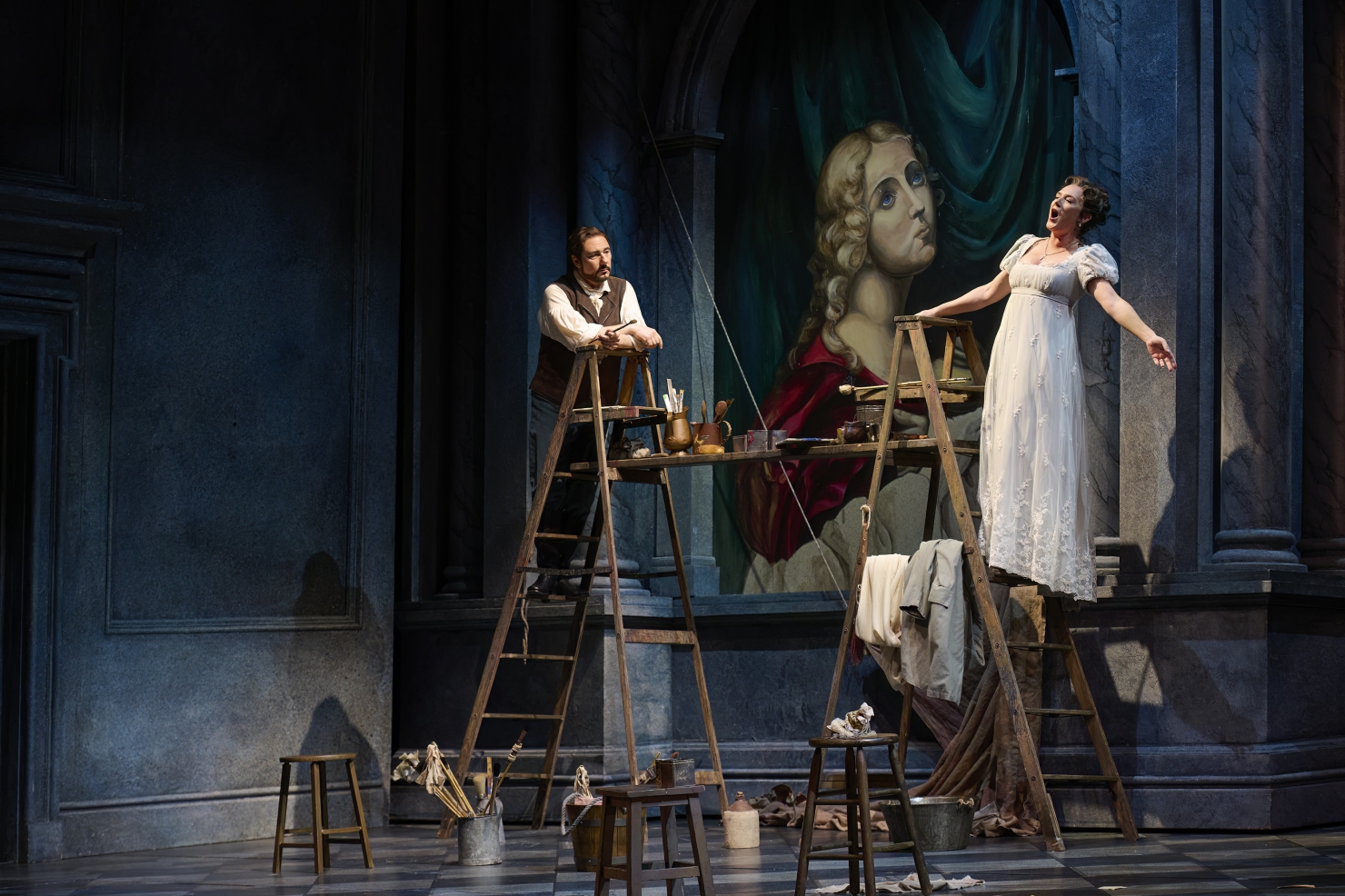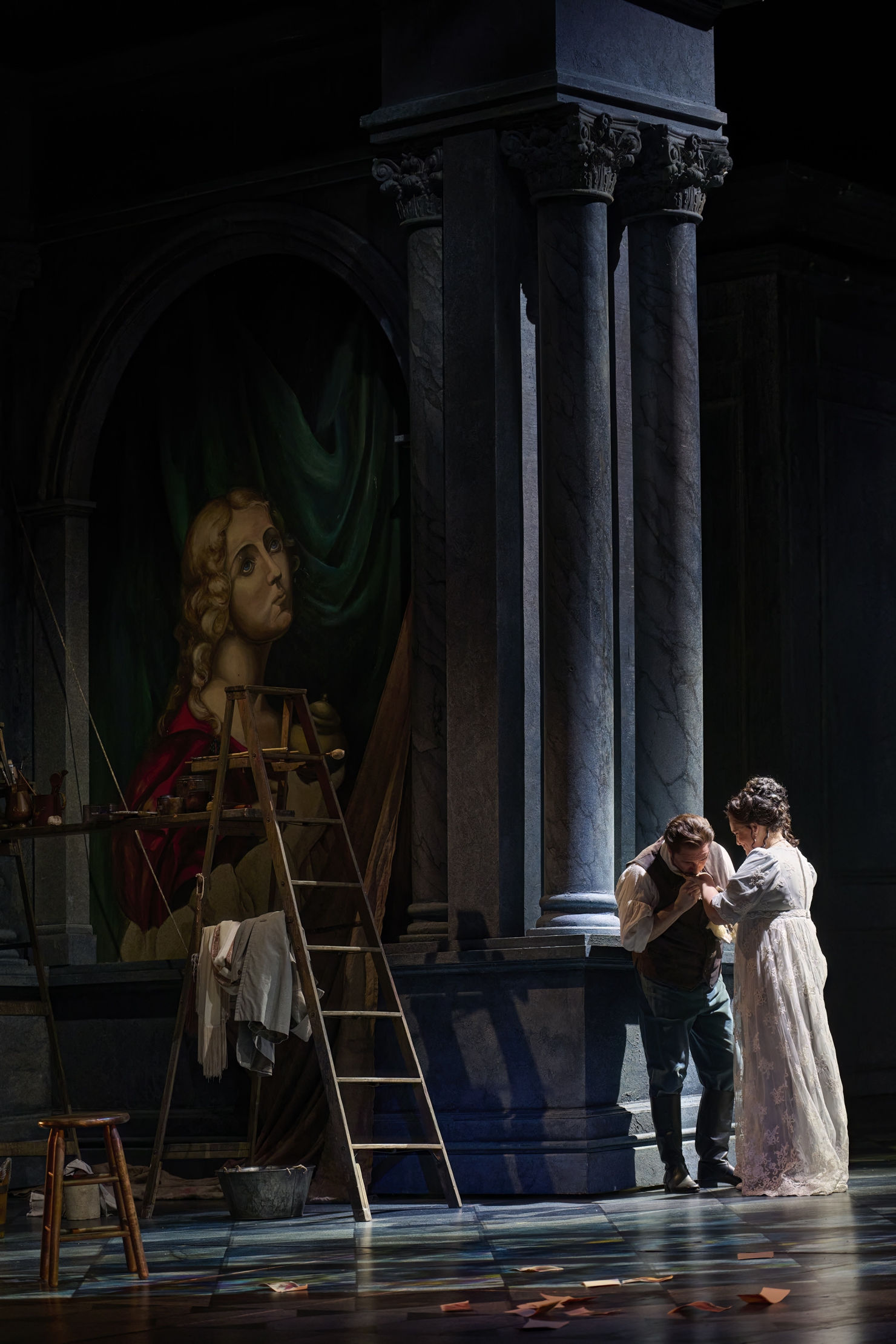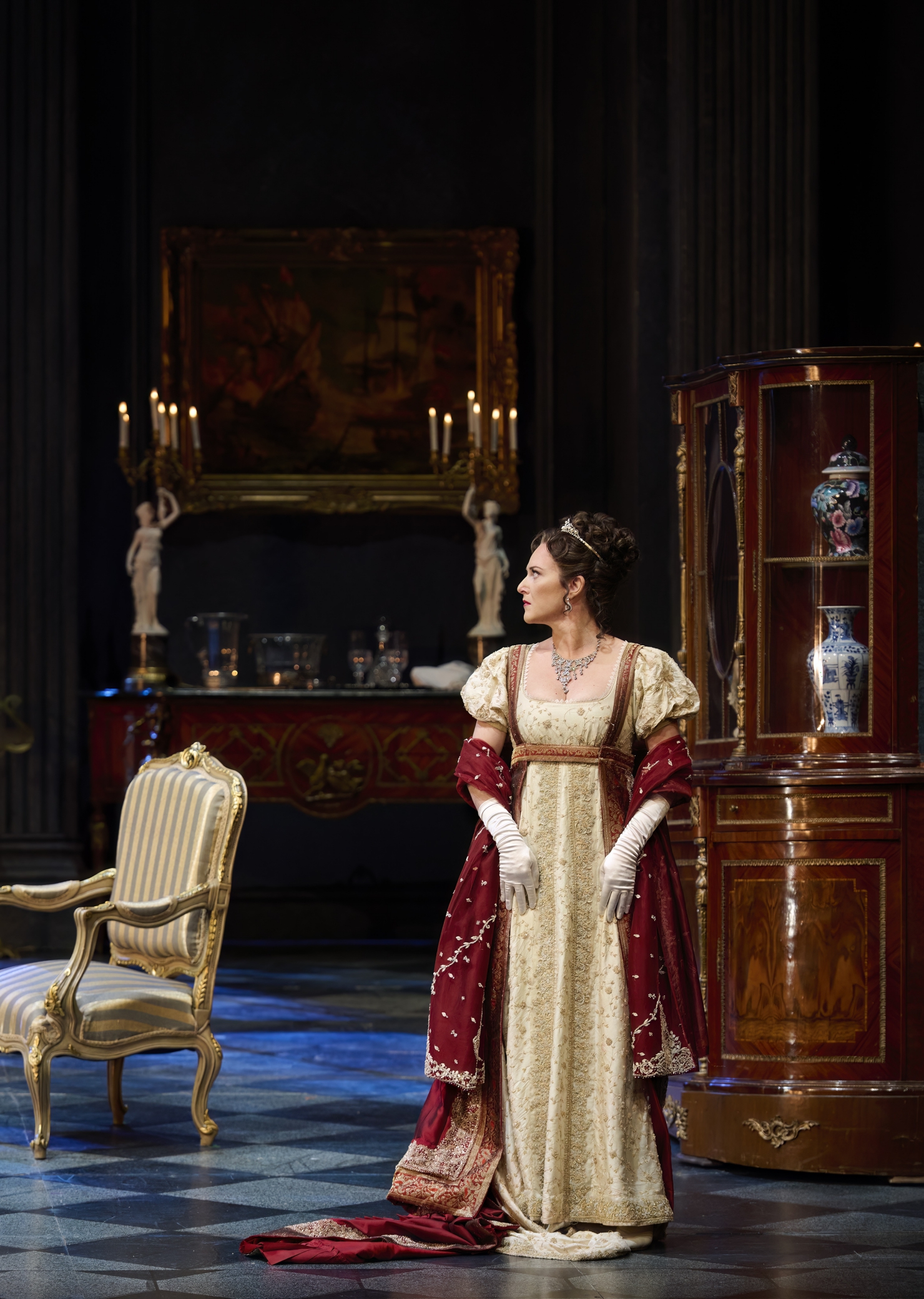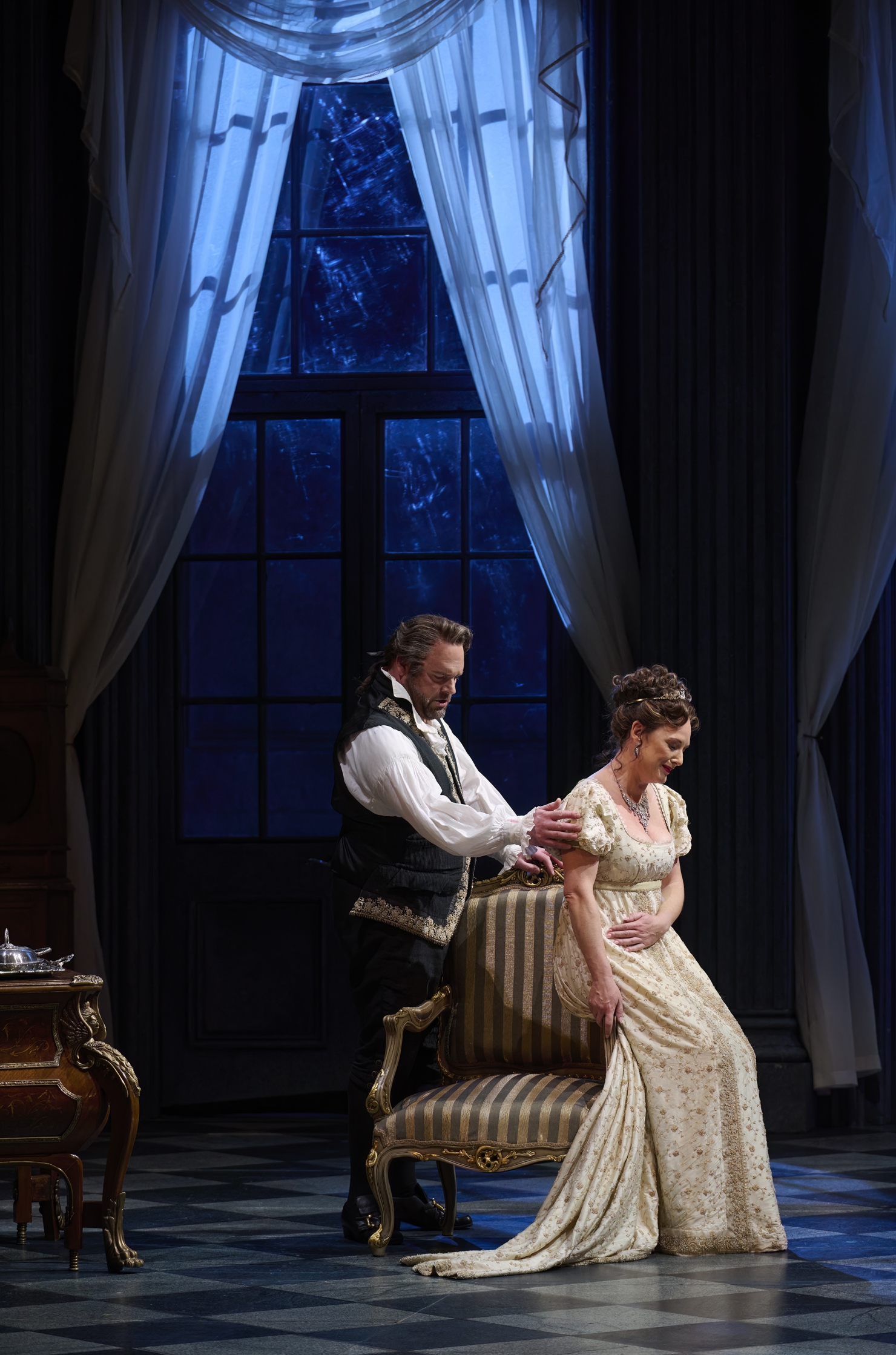
Roland Wood delivers terribly good Scarpia in COC's Tosca
ReviewHello, Schmop-Tops!
It’s Friday night and I’m back home again from another opening night at the Canadian Opera Company. This time it was none other than one of the quintessential works of our genre - Puccini’s Tosca.
What’s more operatic than an opera about an opera singer who dies for love? I’ll wait.
Tosca tells the story of Floria Tosca, a pious singer who is well-known and somewhat powerful in Rome during the time of Napoleon Bonaparte’s excursions. She is in love with the master painter Cavaradossi, who is very much in love with her in return. Cavaradossi is working on a commission of the Maddalena for the church, and it’s in this chapel where the story kicks off.
Angelotti, a political rebel and friend of Cavaradossi, has escaped from prison and made his way to his family’s chapel with the help of his sister - who happens to be Cavaradossi’s inspiration for his image of the Magdalene. All this secrecy sets off Tosca’s jealous-girlfriend-alarm. Cavaradossi calms her, assures her and makes plans to meet her at his cottage after her concert that evening.

The plot thickens when Angelotti is sent to the same cottage to hide in the well from the dreaded prison warden Scarpia who is chasing Angelotti down. Scarpia plays to Tosca’s jealousy - trying to get her to betray Cavaradossi and Angelotti. Through Scarpia’s torturing the painter, she acquiesces to his nefarious requests. All to secure free and safe passage for her and her lover. Not to be outwitted though, Tosca double-crosses Scarpia (pardon the pun) and then murders him with his own blade hidden in a crucifix.
She rushes off to save Cavaradossi, whose death by firing squad is to be faked using blanks. The order for the blanks wasn’t carried out and Tosca witnesses her love being executed in one final post-mortem stroke by Scarpia. Determined not to have her story end on someone else’s terms, Tosca takes her own life by throwing herself from the ramparts of her lover’s prison.

There’s the story in three paragraphs. No witches, dragons, or Valkyries. Just people caught up in greed, corruption, love, art, and politics. This is verismo at its best. The story is complex and simple at the same time. There’s a balance between comedy and suspense in the first act that gives way to total suspense and shock towards the end. It’s a great piece of theatre and it was in great hands at the Four Seasons Centre for the Performing Arts.
Leading the cast, chorus, and orchestra from the pit in Paul Curran’s staging, last seen at the COC in 2017, maestro Giuliano Carella (making his COC debut) led a luscious and thick Puccini score cleanly and adeptly. There were a few moments of some balance issues when the orchestra was at its fullest and the singers were in their mid- or lower-ranges. Those moments were few and far between, though.

Making her COC mainstage debut in the title role, soprano Sinéad Campbell-Wallace sang a beautiful Floria (a role shared with fellow soprano Keri Alkema). Her luscious mid-range deftly handled Puccini’s writing, with excellent, judicious use of her chest voice - maybe even more than one would expect, but it worked perfectly with the dramatic intent of the production. Her oscillation between the coy, love-stricken diva and the fiesty, jealous, diva was well-tempered and very entertaining. I was surprised at how funny her Tosca was.
Tenor Stefano La Colla, also making his COC mainstage debut, took on the incredibly difficult role of the painter Cavaradossi. Affable, charming, and impassioned he was embodying the clandestine rebel very well. The singing was lovely, however, I found in the first act the Puccini tradition of tenors “hooking” into the money notes may have hindered him actually placing them properly in tune. The issue was less present in Act II and disappeared completely in Act III. I felt that the more challenged he was physically as an actor, the more control he had over his gorgeous instrument.
As the rebel/prison escapee Angelotti, a fourth debut for the COC mainstage, we had Christian Pursell. Excellently sung, brilliantly acted. His music with Cavaradossi was sung deliciously, their two voices brought out even better qualities in each other.
Then there’s Scarpia. Everybody loves to hate Scarpia - to be clear, we should. He’s terrible. You know what isn’t terrible? Roland Wood playing the chief of police. Inhabiting the role of an entirely unforgiveable monster of a man is no easy feat to do and not make him cartoon-y. Your skin crawled when he spoke to Tosca. You wanted to cheer when his carcass hit the floor in his office. Yet, besides all of this, it has to be well-sung. Wood’s handling of the Baron’s music was excellent. His tone evenly matched throughout his range, and a fantastic use of his dynamic colour palette to really dig into the darkness of Scarpia. It was the kind of performance that makes you want to go home and start learning a role immediately.

Despite the darkness of what Scarpia is actually doing with Cavaradossi and Tosca, there’s still a bit of lightness to balance everything out in the form of Scarpia’s henchmen Spoletta and Sciarronne, played by Michael Colvin and Giles Tomkins respectively. The two brought a “bumbling oaf” quality to these two pretty shady characters. While they are dangerous, they do have an underlying “Wet Bandits” from Home Alone kinda vibe. Only in the second act do we truly see how dangerous they are and the shift is very engaging. Another form of levity came in the form of the Sacristan sung beautifully by Donato Di Stefano. Puccini, Giacoso, and Illica definitely set up a much lighter story at the beginning - even despite the work opening up with a distraught Angelotti. You’re almost led to believe that everything is going to be alright within the first 20 minutes of the show. Only once we see how Scarpia treats the Sacristan do we realize what the universe on this stage actually looks like.
I want to send a personal note to the director, Mr. Curran: Thank you so much for your treatment of Act I - that is how one ends an act! True theatre. Bravo!
And bravi tutti! The show runs until May 27, and you can get tickets here. Trust me, if you want to see a true opera opera, go see COC’s Tosca before it closes.


Comments